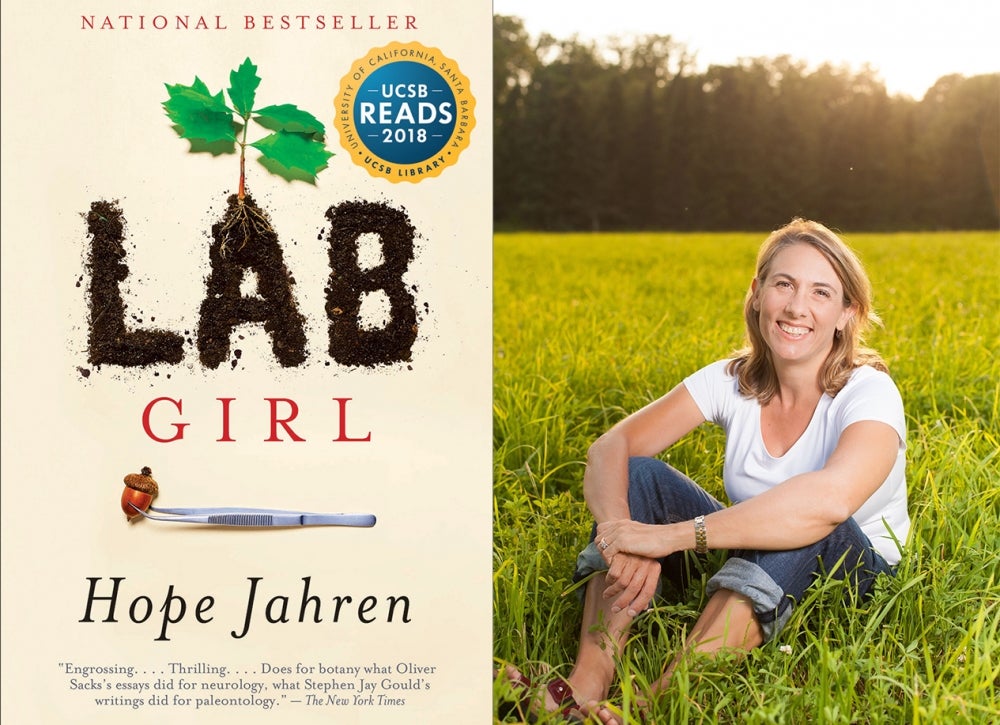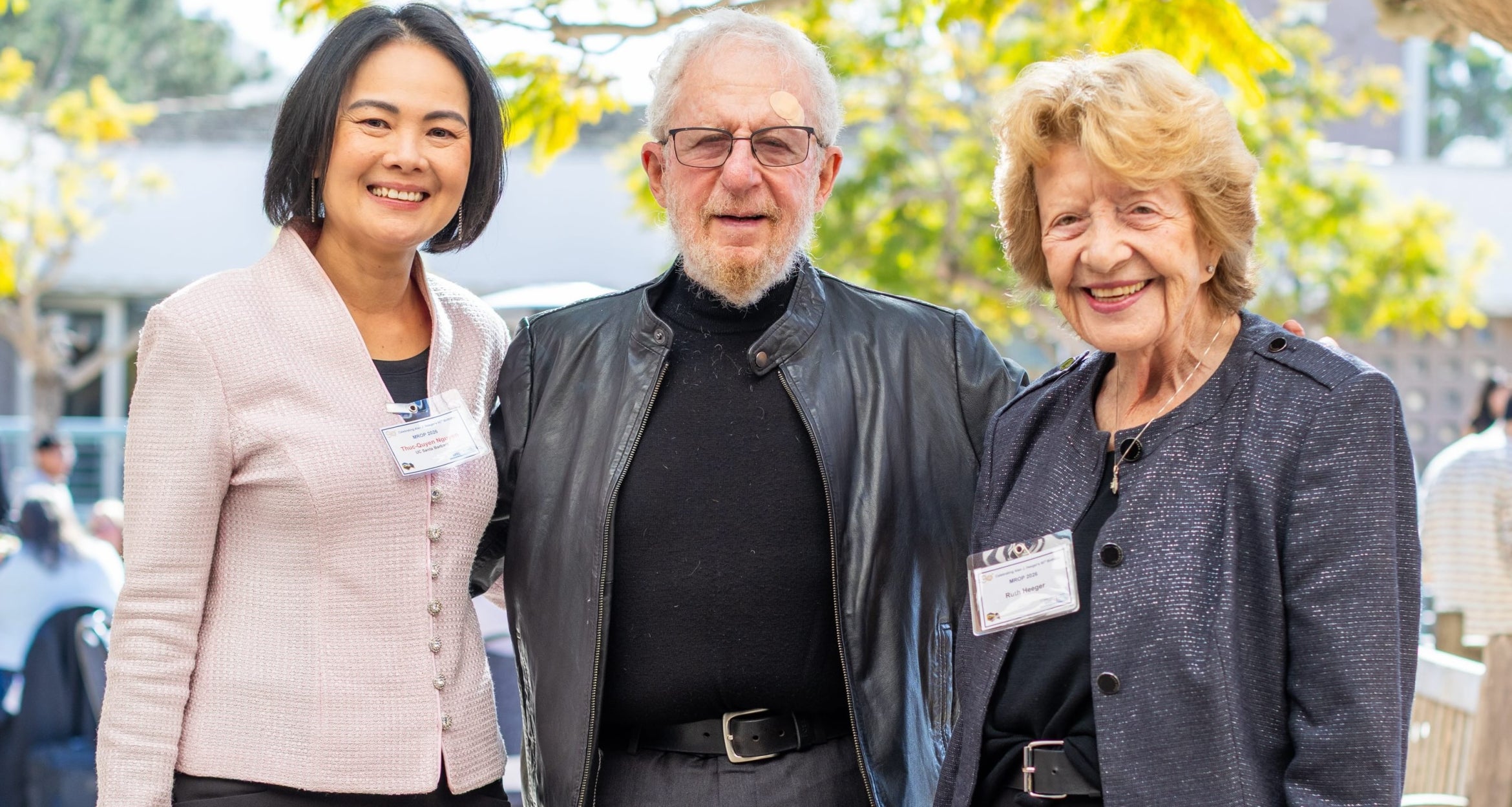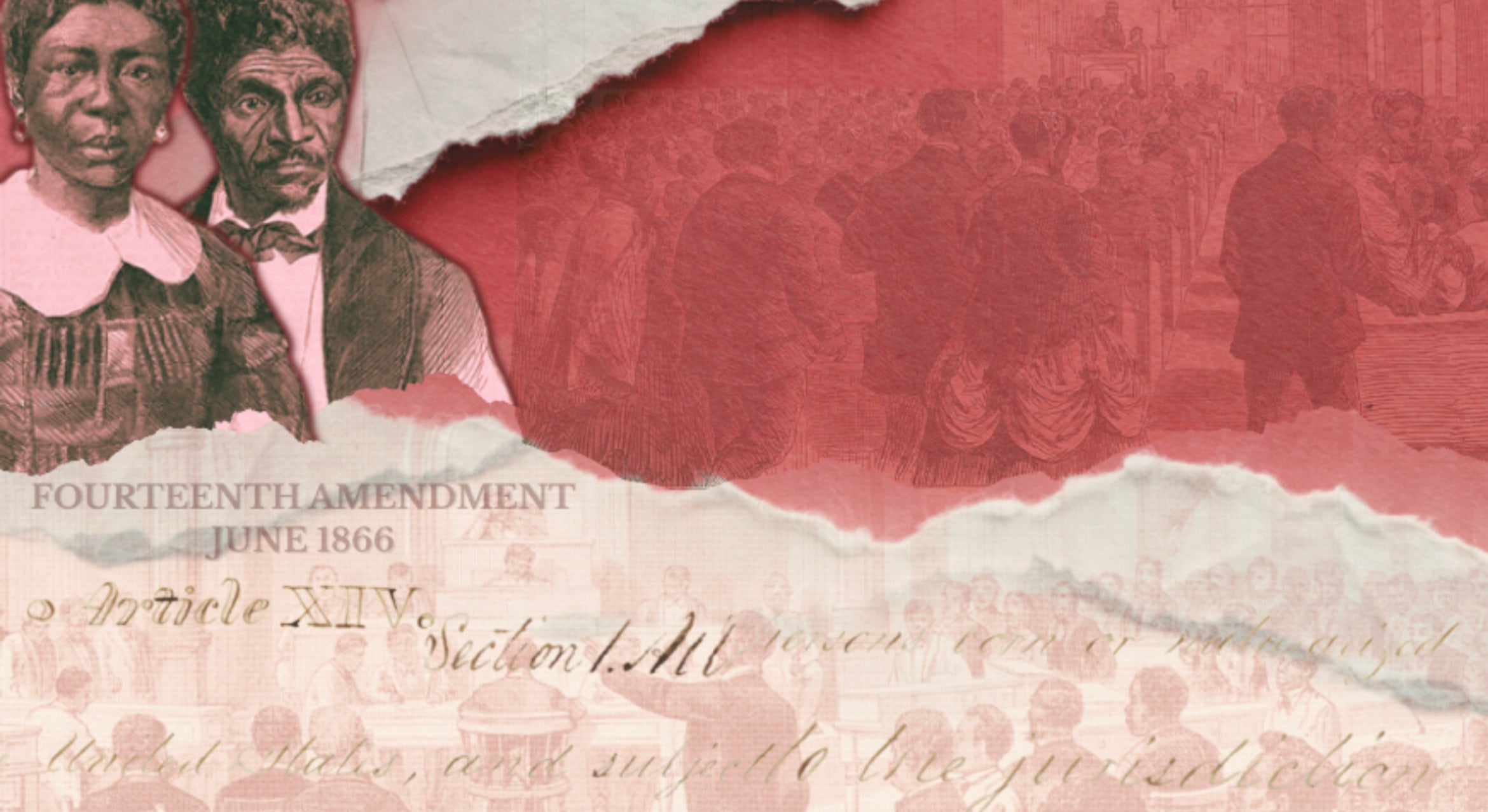
Rooted in Science
As the daughter of a community college instructor who “taught all the sciences — chemistry, physics, geology and even calculus,” Hope Jahren practically grew up in a lab.
“Just like how the kids of the family that owned the ice cream shop learned to scoop ice cream, my brothers and I learned how to fix and maintain the laboratory that he used to teach demonstrations and show students how to conduct experiments,” she recalled of her father. “We used to go there in the evening and help him set up for the next day, and he was endlessly patient and loved to explain the apparata and just indulged us in whatever we wanted to do.
“I carried that feeling of happiness and home into all of the labs where I worked, and into the labs that I built,” she added. “The lab is, and always was, the place that I loved best to be.”
That early spark for science, which became a lifelong pursuit and passion, is captured in Jahren’s bestselling memoir, “Lab Girl,” a chronicle of her coming-of-age experience as a female scientist, juxtaposed against beautifully rendered meditations on the life of plants.
In a talk that is free and open to the public, Jahren will discuss her book at 8 p.m. Tuesday, April 3, at UC Santa Barbara’s Campbell Hall. “Lab Girl” is the 2018 selection for UCSB Reads, a community engagement program of the UCSB Library.
“I was glad and grateful to be able to tell my story,” Jahren said of writing the book. “I felt like an honest description of the realities of a life in science had not been captured, and I felt compelled to try. I hope it encourages others to bring their stories forward, because there are a thousand different ways to approach science, and my story is only one example — but it is the story that I had to share.”
From English and creative writing to chemistry and geography, courses across UCSB found learning opportunities in “Lab Girl.” Faculty in a range of disciplines — even psychology, materials and linguistics — have incorporated the memoir of a female scientist into their curriculum this year.
“I found myself discussing the book over lunch with colleagues, randomly in my office hours with students, in a book club and then more formally in class,” said Kathy Foltz, an associate professor in molecular, cellular and developmental biology, who taught the book in her leadership course, “Science for the Common Good.”
“In class we discussed a variety of topics, including the experience and challenges of starting out in a science career, personal and professional relationships, and the fascination with a given subject — in Jahren’s case, a love of trees,” added Foltz, who also is interim dean of UCSB’s College of Creative Studies. “Regardless of whether one ‘liked’ the book, it provided a platform to ask questions about and self-reflect on topics that would not necessarily be on a syllabus yet are so valuable to explore.”
Now in its 12th year, UCSB Reads is a program of the UCSB Library. Conducted in partnership with the Office of the Executive Vice Chancellor, engages the campus and the Santa Barbara community in conversations about key topics while reading the same book. A committee comprised of faculty and staff members, administrators and student representatives made this year’s selection.
Jahren’s appearance on campus comes amidst four months of UCSB Reads activities, including performances, live readings, panel discussions, film screenings, book groups, exhibitions and more. The public lecture and book signing is the cornerstone event of the series.
As she “traces her path from an early infatuation with the natural world to hard-earned accomplishments as a scientist recognized for breakthrough contributions to her field,” Jahren in her book reflects on difficult periods in her life — from struggles with mental illness to the financial hardships of starting a research lab — all the while celebrating the joys of scientific discovery and friendship. In that way, “Lab Girl” speaks to the professional (and personal) heights one can hit when engaged in your true calling.
“I would say pay close attention to what you enjoy, and why you enjoy it — what about learning feels good?” Jahren advised students and readers still seeing their ‘thing.’ “Do you like to go outside and look for animals, insects or leaves? Do you like to take things apart and see how they work? Do you like to solve puzzles and equations? Do you like to draw or graphically design? I think students tend to focus on their weaknesses — the hard class that they need to study extra for, the part of the work that doesn’t come naturally, that they aren’t straightforwardly ‘good’ at, but they don’t think enough about what they are good at, and why it comes easily, and why it feels good to do it. If you analyze what it is you enjoy doing, and why you enjoy it, and exactly what skills you are using when you are having fun doing it, it will bring you closer to figuring out an interest that can stay sharp and grow with you throughout your career."
Demonstrating the wide appeal of “Lab Girl,” from the sciences to the humanities, Jahren received both the National Book Critics Circle Award for Autobiography and the American Association for the Advancement of Science/Subaru Books & Film Prize for Excellence in Science Books. “Lab Girl” also was a finalist for the PEN/E.O. Wilson Literary Science Writing Award, and was named one of the Best Books of the Year by The Washington Post, NPR, Slate and others.
Currently the J. Tuzo Wilson Professor at the University of Oslo, Norway, Jahren conducts research on living and fossil organisms, studying how they are chemically linked to the global environment. She received her Ph.D. from UC Berkeley and was a tenured professor at the University of Hawai’i from 2008 to 2016, where she built the Isotope Geobiology Laboratories with support from the National Science Foundation, the U.S. Department of Energy and the National Institutes of Health. She is the recipient of three Fulbright Awards, and is one of four scientists — and the only female — to have been awarded both Young Investigator Medals given in the earth sciences.



